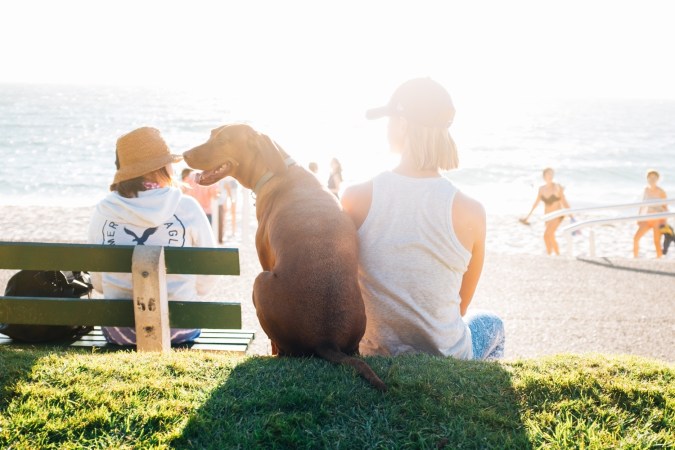

A vacation might last only a few days or weeks, but it stays with you as long as you remember it. And memories are funny things — they don’t always reflect reality.
That’s one of the quirks of memory: the brain focuses on select pieces of an experience, rather than evenly remembering the whole thing. People also tend to remember endings more than middles.
“The vacation includes three parts: the time before, the time during, and the time after,” says Dan Ariely, a professor at Duke University who studies human decision-making. Ariely is a behavioral economist, meaning he uses psychology to explain economics.
“The shortest one is the time during,” Ariely continues. “So we need to think more about the time before, which is anticipation, and time after, which is memory.”
That means figuring out how to create not just fun times, but memorable ones. Sitting on a beach and drinking Moscow mules for a week may be relaxing, but it doesn’t create many memories. Instead, the days will likely blend together, Ariely says.
That’s why variety is key. Different experiences will turn into different memories down the line. That doesn’t mean you have to paddle across the Amazon one day and go shopping in Paris the next to have a nice trip.
“Even if it’s small variations: one day skiing, one day snowboarding, another day sledding,” Ariely explains. “We also should think of learning something for the long term, so the memory is more intense.”
In one study, scientists looked at two groups of men undergoing colonoscopies, which are quite painful. Doctors gave the first group of men regular colonoscopies, but changed things up for the second set. These men received the same medical procedure as the others, but doctors added a few extra minutes of less-painful but still uncomfortable colonoscopy time at the end.
You might think the men preferred the first, shorter treatment. But in fact, they considered the second one to be less unpleasant, even though it lasted longer. Those in the second trial were also more likely to come back for follow-up colonoscopies years later.
The scientists think that’s because the men’s brains paid extra attention to the colonoscopy endings. The longer colonoscopy may have been more painful overall, but since the ending wasn’t so intense, the brain remembered the whole procedure as being less uncomfortable. Good evidence for why endings matter more than middles.
This fact doesn’t just apply to colonoscopies. The end of a vacation likewise stands out more than the time in the middle. But that can be unfortunate since the last leg of a trip is often dull and irritating.
“You leave the hotel and you pay, you get on a flight and they misplace your luggage, you go home and have to do laundry,” Ariely says. “It’s kind of a shame that a vacation has to end on a downside, but it does.”
In turn, that makes you remember vacations as being worse than they actually were. But don’t worry—there’s a workaround. You may not be able to avoid paying hotel bills or losing your luggage, but that doesn’t mean you’re doomed to focus on these annoying bits. You can reframe your vacation to end in a different way.
Ariely suggests symbolically ending a vacation late. After you get home and do laundry, declare another day of vacation. That could mean doing something fun in town or even just looking through vacation photos and eating the exotic food you brought back. That way, this much more pleasant ending will sear itself into your mind, ensuring all those good memories will last far longer than any trip.















